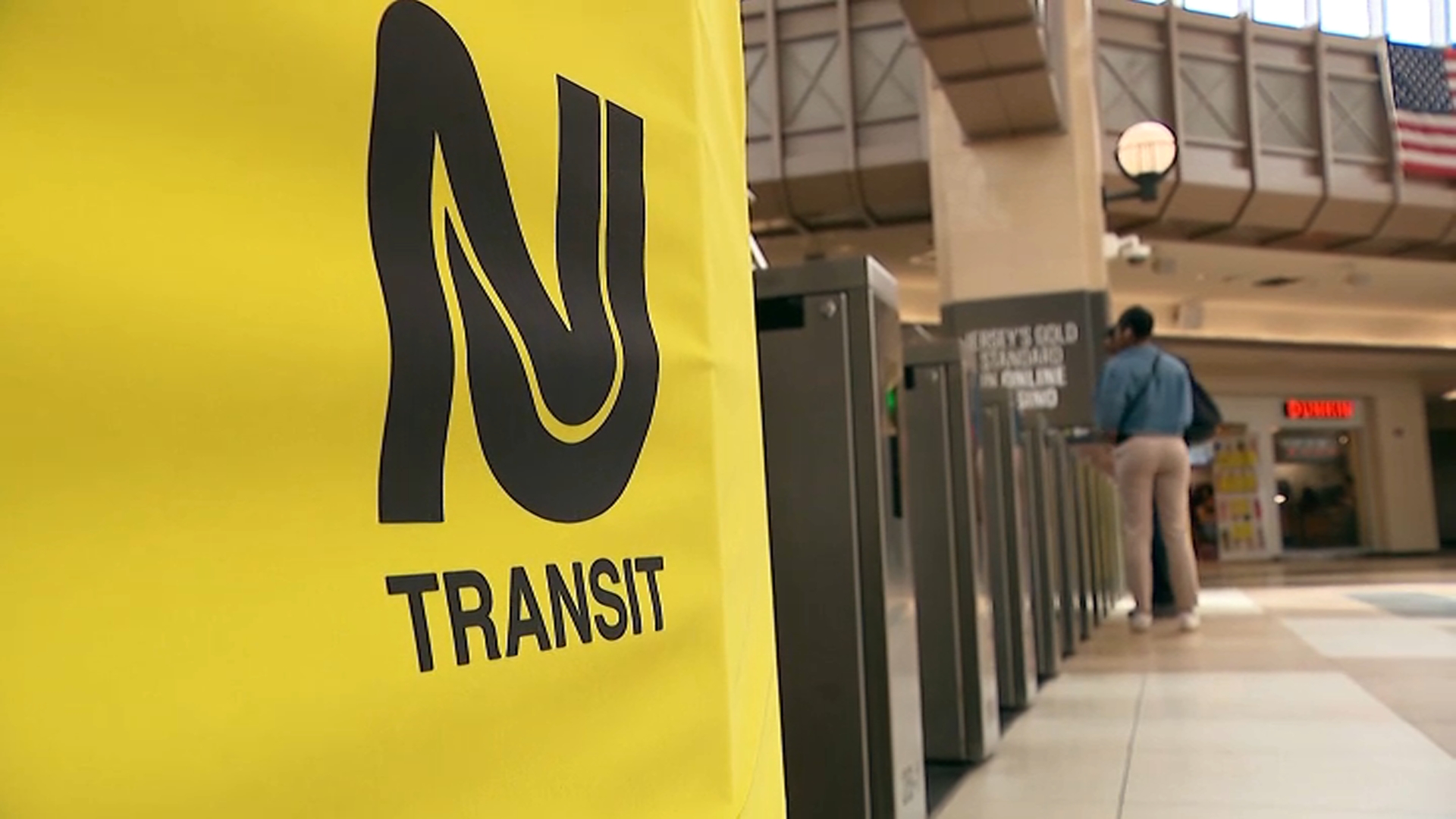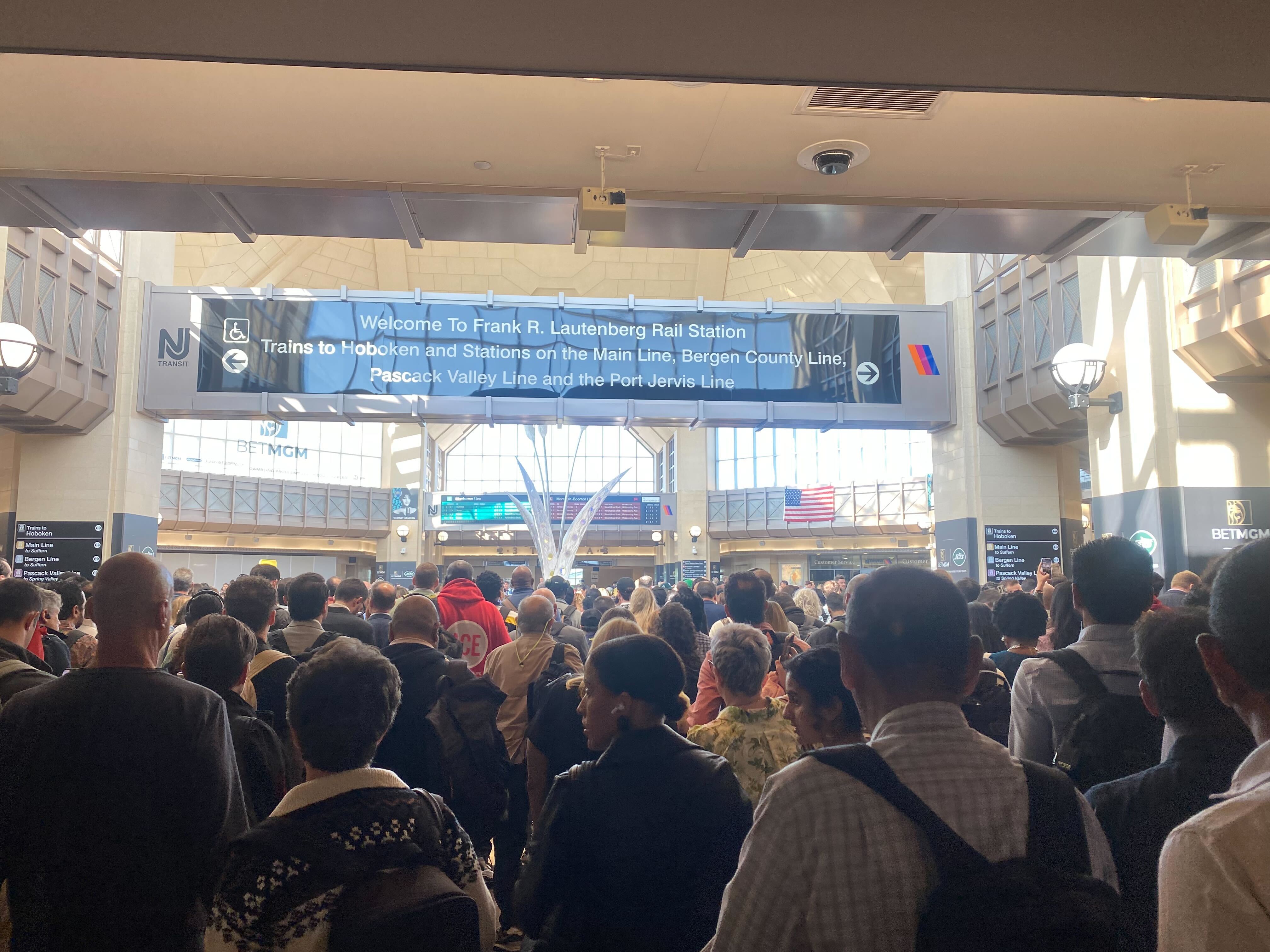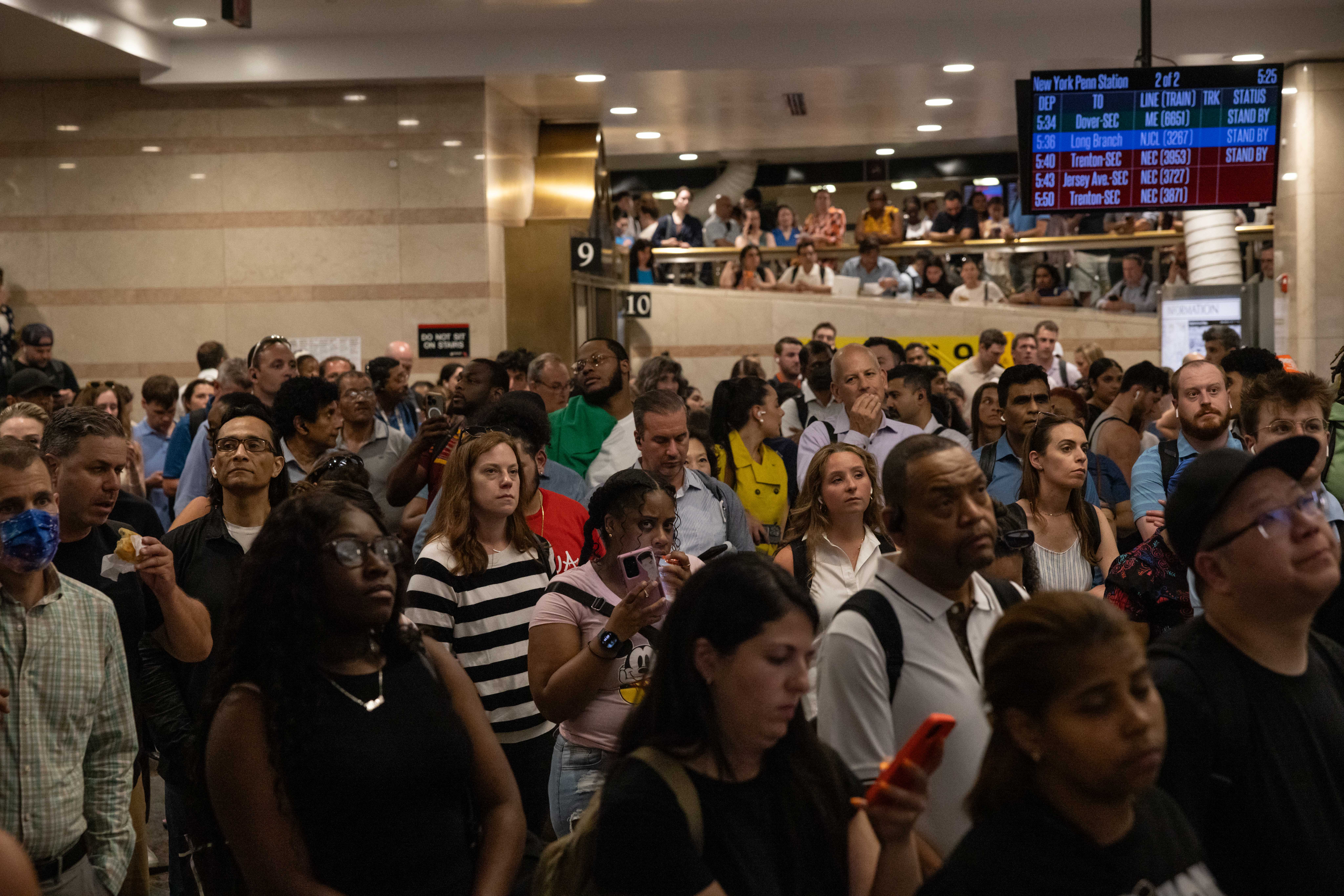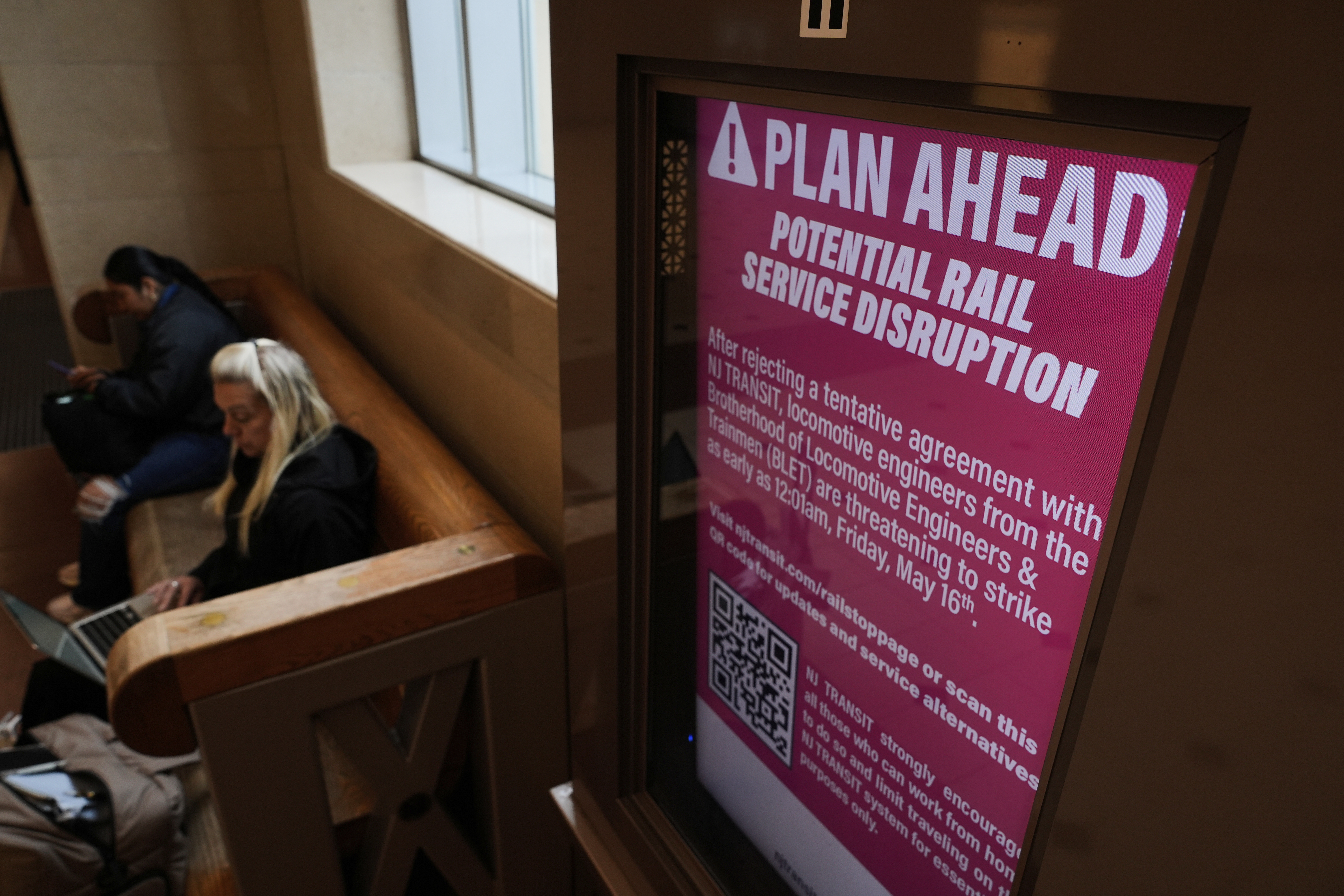NJ Transit Strike Looms: Will DC Meeting Save Commuters?
NJ Transit Strike: Will D.C. Meeting Avert Disaster for Commuters?
Introduction: A Commuter's Nightmare on the Horizon?
Picture this: You're gearing up for another work week, relying on NJ Transit to get you there on time. Suddenly, news breaks of a potential strike. Panic sets in. Will you be stranded? Will you lose your job? The anxiety is palpable. That's the reality facing hundreds of thousands of New Jersey commuters as NJ Transit and the Brotherhood of Locomotive Engineers (BLE) are heading to Washington, D.C., for emergency talks. The stakes are incredibly high, with the potential for the first major rail strike in the Garden State since 1983. Can this meeting prevent what many are calling a commuter's worst nightmare?
Negotiations Under Pressure: A Race Against Time
The National Mediation Board (NMB) has summoned both sides to the nation's capital, signaling the gravity of the situation. Their involvement indicates that the negotiations have reached a critical juncture and intervention is necessary to prevent a strike. It's like a referee stepping into a boxing match to prevent a knockout. Will the NMB be able to successfully mediate a solution, or will New Jersey's rail system grind to a halt?
NJ Transit's Stance: A Call for Compromise
NJ Transit's President & CEO, Kris Kolluri, has publicly expressed his desire to avoid a strike.
“I welcome the National Mediation Board’s invitation to resume mediation in Washington on Monday, May 12,” he said. “I have always said we should avoid a strike and not disrupt the lives of 350,000 riders.”
His statement reflects a sense of urgency and a willingness to negotiate. But words are just words; will NJ Transit back them up with concrete actions and concessions?
The Brotherhood of Locomotive Engineers' Perspective: Demands Unmet
While the specifics of the BLE's demands haven't been entirely detailed in this provided context, it's safe to assume they revolve around key issues such as:
Wages and Benefits
Are engineers seeking better compensation packages to reflect the demanding and critical nature of their jobs? Are they looking for enhanced health benefits or retirement plans? These are often sticking points in labor negotiations.
Working Conditions
Are there concerns about safety protocols, work-life balance, or scheduling practices? Long hours and demanding schedules can lead to burnout and compromise safety.
Job Security
Are engineers worried about potential layoffs or the impact of automation on their jobs? Job security is a fundamental concern for any union.
The Looming Deadline: A Friday Frenzy
The threat of a strike becomes very real next Friday. The clock is ticking. This deadline puts immense pressure on both NJ Transit and the BLE to reach an agreement. Imagine a high-stakes poker game where both players are bluffing. Will someone fold, or will they call each other's bluff and risk everything?
The Impact on Commuters: A Transportation Crisis
A rail strike would be devastating for New Jersey commuters. 350,000 riders rely on NJ Transit every day. The repercussions would ripple through the entire state, affecting businesses, schools, and the economy. Think of it as a major artery being blocked, disrupting the flow of everything.
Alternative Transportation Options
If a strike occurs, commuters will be scrambling for alternative transportation. This could lead to:
- Increased traffic congestion on already crowded highways.
- Overcrowding on buses and other public transportation options.
- Longer commute times and increased stress levels.
The Economic Fallout: A Costly Disruption
A rail strike would not only inconvenience commuters but also have a significant economic impact. Businesses could suffer losses due to employees being late or unable to get to work. The tourism industry could be affected. The overall cost to the state's economy could be substantial. It's like throwing a wrench into a well-oiled machine.
Historical Perspective: Learning from the 1983 Strike
The last major rail strike in New Jersey occurred in 1983. It caused widespread disruption and hardship. Can the lessons learned from that strike help prevent a similar situation today? History often repeats itself, but hopefully, both sides have learned from the past.
The Role of Government: A Potential Intervention?
Could the state or federal government intervene to prevent a strike? In some cases, government intervention can help break a deadlock. But it's a delicate balancing act; intervening too early could undermine the negotiation process.
Possible Outcomes: Best Case, Worst Case, and Middle Ground
Best Case Scenario
NJ Transit and the BLE reach a fair and equitable agreement that addresses the concerns of both sides. Commuters breathe a sigh of relief, and the trains continue to run smoothly.
Worst Case Scenario
Negotiations fail, and the strike proceeds. Commuters face chaos, the economy suffers, and both NJ Transit and the BLE face reputational damage.
Middle Ground Scenario
A temporary agreement is reached to avert the immediate threat of a strike, but negotiations continue. This provides some breathing room but doesn't resolve the underlying issues.
The Importance of Transparency: Keeping Commuters Informed
It's crucial for NJ Transit and the BLE to keep commuters informed about the progress of negotiations. Transparency can help reduce anxiety and prevent misinformation from spreading. Open communication is key to maintaining public trust.
The Public's Sentiment: Frustration and Uncertainty
Commuters are understandably frustrated and uncertain about the future. They are caught in the middle of a labor dispute that is beyond their control. Their voices need to be heard, and their concerns addressed.
Beyond the Strike: Long-Term Solutions for NJ Transit
Regardless of the outcome of these negotiations, it's essential to address the long-term challenges facing NJ Transit. This includes investing in infrastructure, improving service reliability, and fostering positive labor relations. A band-aid solution won't suffice; long-term planning and investment are crucial.
Conclusion: A Pivotal Moment for New Jersey
The upcoming meeting in Washington, D.C., represents a pivotal moment for New Jersey. The fate of hundreds of thousands of commuters, the state's economy, and the reputation of NJ Transit and the BLE hang in the balance. Let's hope that cooler heads prevail and a solution is reached that avoids a disastrous rail strike. The future of NJ Transit, and the countless lives it impacts, depends on it.
Frequently Asked Questions (FAQs)
Q1: What happens if NJ Transit and the engineers' union can't reach an agreement?
If no agreement is reached, the Brotherhood of Locomotive Engineers could initiate a strike. This would halt or severely disrupt NJ Transit rail service, impacting hundreds of thousands of commuters.
Q2: How will I know if a strike is going to happen?
NJ Transit and media outlets will likely announce any strike action as soon as it's confirmed. It's crucial to stay informed through official channels like the NJ Transit website, news websites, and social media.
Q3: What are my transportation options if a rail strike occurs?
Alternatives include buses, carpooling, driving (though this will increase traffic congestion), and exploring ride-sharing services. Consider working remotely if possible.
Q4: What are the main issues being negotiated between NJ Transit and the engineers' union?
While the exact details aren't always public, common issues in such negotiations include wages, benefits, working conditions (such as safety and scheduling), and job security.
Q5: How can I voice my concerns about the potential strike?
Contact your state representatives and NJ Transit directly to express your concerns. Public forums and online petitions are other avenues to make your voice heard.





